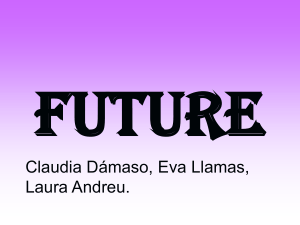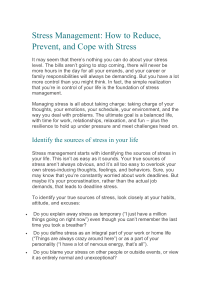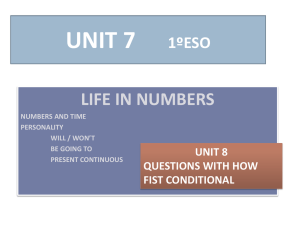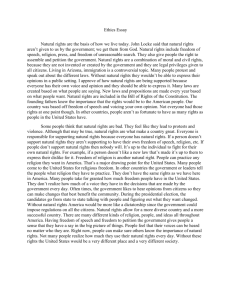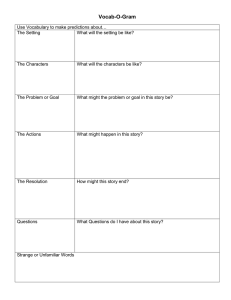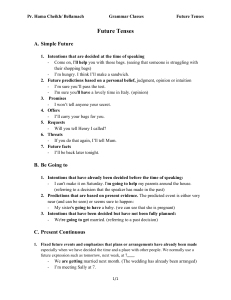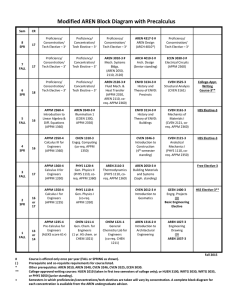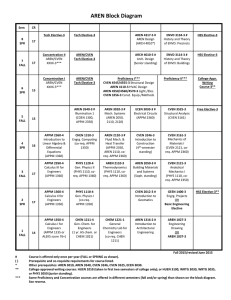The Future Tens
advertisement
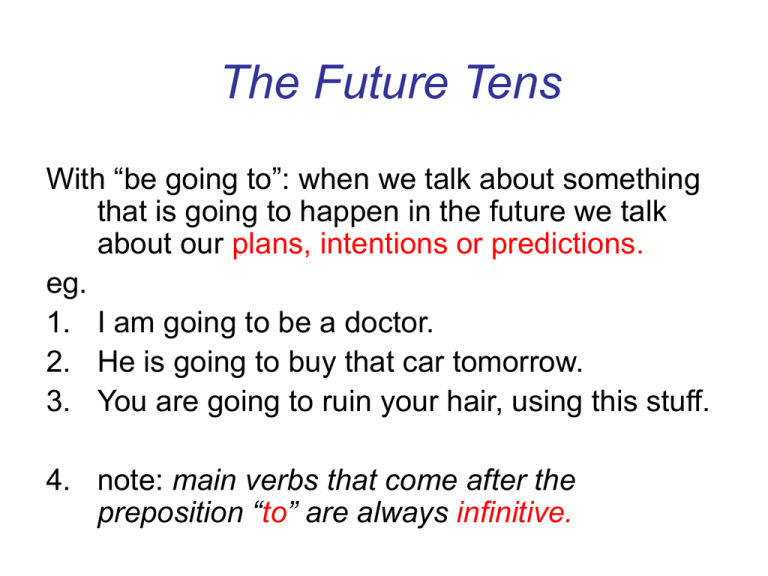
The Future Tens With “be going to”: when we talk about something that is going to happen in the future we talk about our plans, intentions or predictions. eg. 1. I am going to be a doctor. 2. He is going to buy that car tomorrow. 3. You are going to ruin your hair, using this stuff. 4. note: main verbs that come after the preposition “to” are always infinitive. Negative • He isn’t going to tell you how he did it. • They aren’t going to the party tonight. • I’m not going to leave till I know the truth. “Yes or No” and Information Questions • The same rules are applied here. • Is he going to give you his boat? • Aren’t they going to meet us there? • Where is Ahmad going to park his car? • Why aren’t you going to buy the cake? • Note: “about to” used to indicate the very near future means right now or in a few seconds. eg. • Ahmad is about to finish fixing the AC. Will • eg. 1. 2. (Will) and “be going to” are most of the time interchangeable but with a slight difference, “be going to” might suggest some planning. While, (will) suggests spontaneous un planned intentions. It is cold in here. Ok I will turn off the AC. Where are you going? I am going to buy some food. • eg. 1. 2. 3. (Will) also is used to give meanings in the future such as (promises and offers): • eg. 1. Finally, predictions: I will look after your office while you are gone. Lets go, I will buy you diner. I won’t be late. It won’t rain. The sun has come up. “Yes or No” and Information Questions • The same rules are applied. eg. 1. Will you go swimming? 2. When will he score ? 3. Will you open that door, please? Note: some questions with will could be for making requests. • Negative questions with will may suggest surprise. eg. 1. Won’t you go to your wedding?
